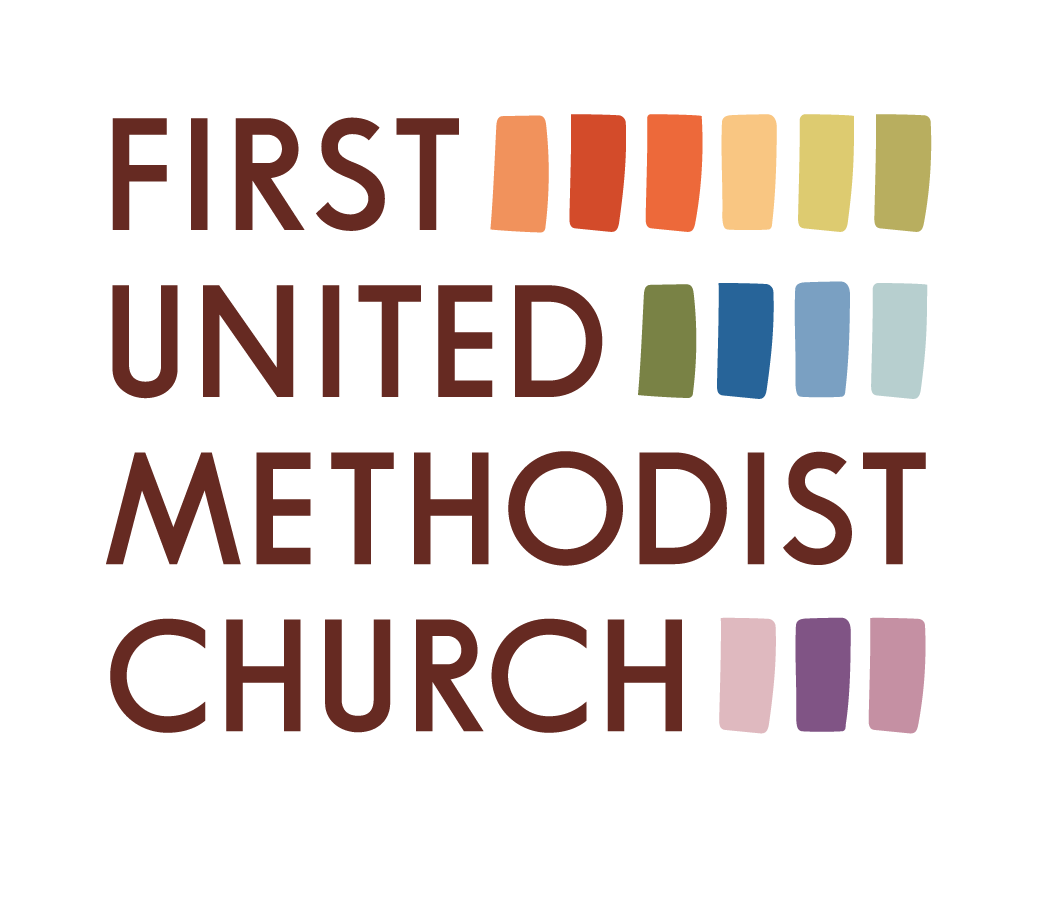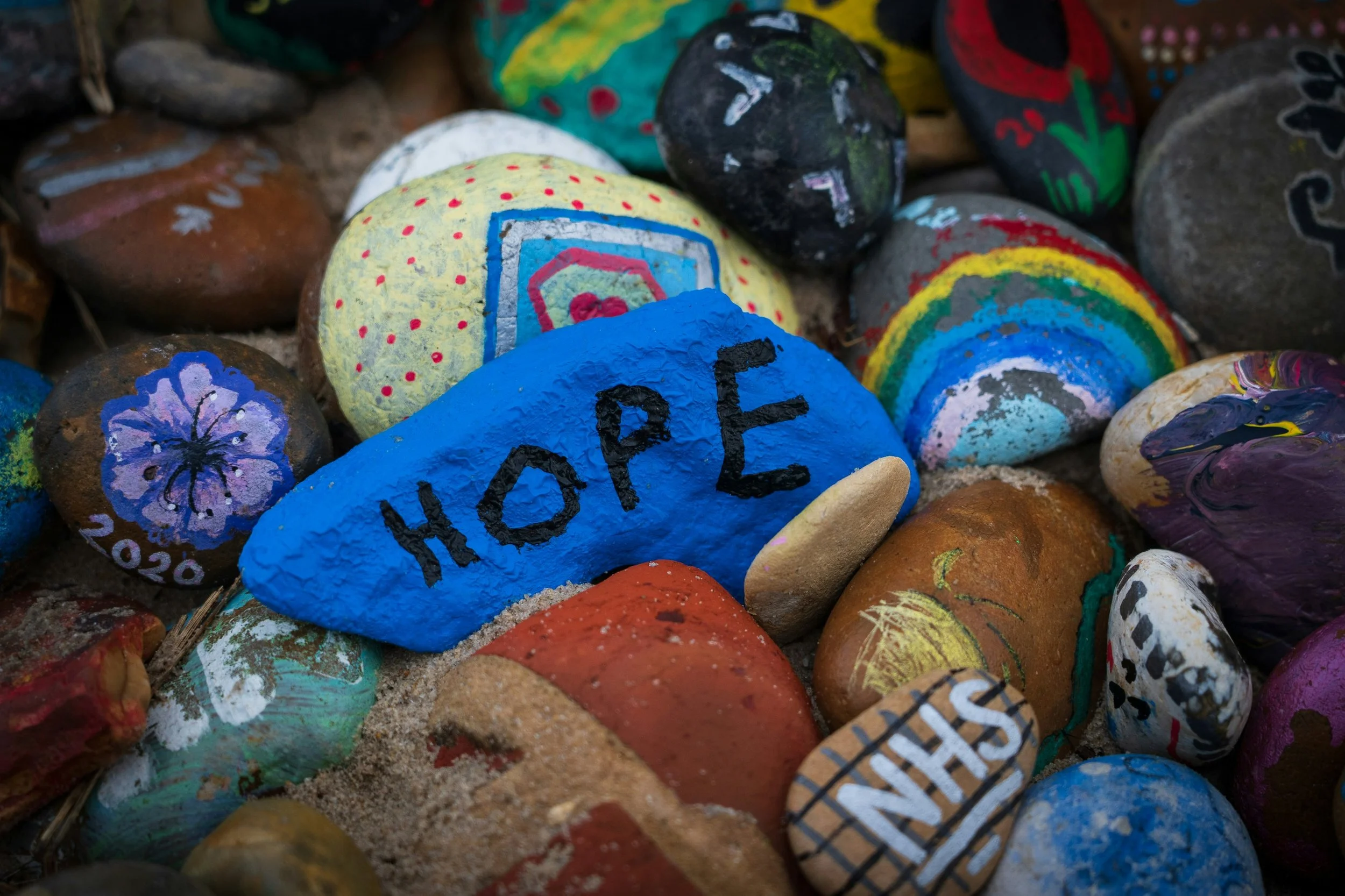Hope Anyway
Some days, we put on our blinders. Other times we are blinded by the grief and gravity of the world’s injustices. But occasionally, when our efforts align, we see the reality around us and the hope that exists anyway.
For me, this week is one of the latter. Even as we are focusing on the violence against Gazans, the Sumud Flotilla seeking to provide humanitarian aid, and the National Guard being mobilized in our own city, there has also been hope! I want to share some of those stories of hope with you, as well as practical reminders for how you can be hope for others in this moment.
On Sunday I joined with other First Churchers to hear an inspiring update about the affordable housing and wraparound services that our friends at Path Home are raising up. Through this expanded vision, Path Home will provide shelter, affordable housing, childcare, and wraparound services for families who can’t afford housing in our city.
On Tuesday I toured the 13 Salmon Shower Project at our neighboring Unitarian Universalist Church. With just one shower and several available rooms, the Shower Project provides hygiene with dignity to our city’s most vulnerable. The project’s first Coordinator is a formerly homeless and addicted man named Kelly Clendenon. Through the documentary, “Helpers,” he shared about the transformative power of community- with his own life and the Shower Project a testimony.
On Wednesday and Thursday I met with 120 clergy from around the state to learn how we can support our immigrant neighbors in this tense moment. We shared about the impact the rapid response clergy presence has made these past months and committed to doubling down on our presence at the immigration courthouse and the immigration building on Macadam. Having come from different networks, cohorts, and faith traditions, each of us came away with a clear message: no one is in this alone.
Each of these touch on huge, pressing issues of our society: issues that not a single one of us can fix on our own. But in each of these circumstances it is clear that if we bind together our compassion, our relationships, and our resources, we can choose how we respond to the issues our community faces. We can choose to respond with love in action.
When families can’t afford housing, Path Home chooses to provide shelter and the next steps toward stable housing and their family thriving.
When there is no reliable hygiene on the street, our Unitarian siblings choose to provide showers and clothing with dignity.
When our neighbors are being detained and the National Guard has been mobilized against our own city, clergy choose to show up with our bodies as a non-anxious and non-violent presence to calm agitators, accompany people going to a hearing or to meet their conditions to stay out of detention, and to offer ourselves as chaplains to the movement.
There is hope here! There is hope here in our city and our state.
Nearly every day this week, I have been reminded in new ways that we are not helpless in the face of the world’s deep grief. Each day we choose how to witness to that grief and how to respond to its source.
The clergy rapid response project described above is one way that I and dozens of other Portland area clergy choose to do this.
It was the immigration rights workers who urgently asked for clergy to be present as they worked with immigrants through their hearings and check ins. That call was answered. Through rotating shifts every day, clergy are present outside the Immigration Courthouse and outside the Immigration and Customs Enforcement field office where many detentions take place. This network of clergy work closely with the legal observers and resource providers to calm anxiety and agitation, accompany those who are scared, report rights violations, and to be a visible reminder of our moral obligation to one another.
In doing so we stand firmly with the vulnerable, bringing whatever compassion we have so as to recognize the humanity in each of our neighbors.
At the moment, the call for movement chaplains is only for clergy. Our clerical garb is an important component of our non-anxious, non-violent, morally accountable presence. But you don’t have to be clergy to choose to be prepared for if you witness someone being detained. By not looking away from the treatment of our neighbors, you provide hope to those who fear they have been abandoned and are going through these trials alone.
The Portland Immigrant Rights Coalition hotline is open to anyone to report ICE presence. These calls are important because they provide details for what is and is not happening in our community, rightsizing anxiety and providing vital information to ensure rights are not violated.
Save the PIRC hotline in your phone: 1-888-622-1510.
When you call the PIRC hotline, remember to be C.L.E.A.R:
Count. “3 officers, 1 van”
Location. “SE 2nd and Morrison, Portland”
Equipment. “Blue uniforms that say ICE, van unmarked.”
Activity. “Officers checking IDs”
Report Time. “2:45pm Thursday, February 27”
You can paste this into the notes section of the PIRC contact card to refer to in the moment. For more information on how our church can support our immigrant siblings or how to get support for yourself, contact Steve Cromer or Rev. Rachel.
These conversations, trainings, and rapid response clergy presence network give me so much hope in this moment. There are still policies to change and systems to dismantle, but today we are standing where we can: with the vulnerable among us. Today, we stand with our neighbors.
When a foreigner lives with you in your land, don’t take advantage of him. Treat the foreigner the same as a native. Love him like one of your own. Remember that you were once foreigners in Egypt. I am God, your God. – Leviticus 19:33-34, The Message
Where are you grieving, where do you find hope, and what is yours to do in this moment?
Peace,
Pastor Karyn

